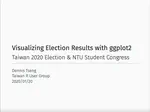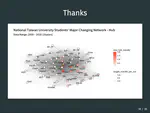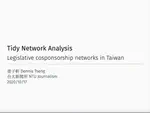Biography
I am Tzu-Hsuan Dennis Tseng. As a reporter specializing in data-driven news and in-depth interviews, I’ve cultivated a keen interest in digital trends, the software industry, and artificial intelligence, including AIGC. I believe that story-telling with data can help us change the world in a positive way.Before transitioning to the media industry, I honed my quantitative skills and applied them to analyze transactional and user behavior data.
Beyond my professional pursuits, I maintain a vigilant eye on issues like disinformation, the societal impact of algorithms, AI’s intersection with journalism, and media bias. I have a particular fondness for data visualization and analytics. Feel free to contact me if you got any tips or if you want to share stories with me.
- Data Journalism
- Data Visualization
- Reporting & Writing
- Statistics
- Data Analysis
-
MA in Journalism, 2022
National Taiwan University
-
BBA in Business Administration, Operations Management & Business Analytics Module, 2019
National Taiwan University
Recent Posts
Projects
Publications
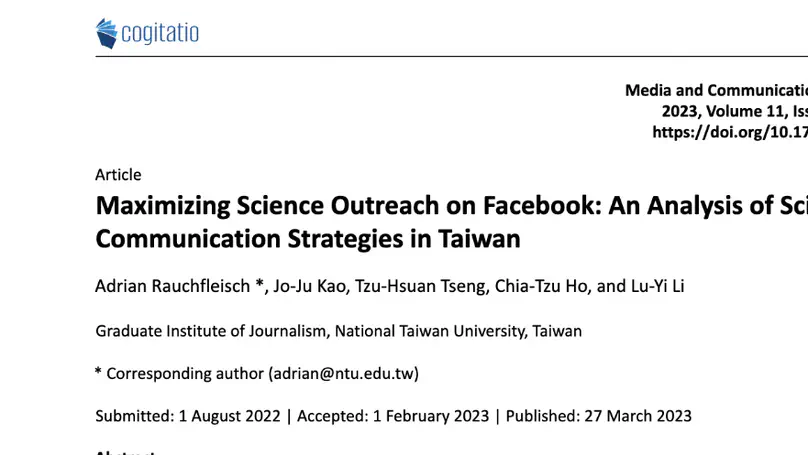
The internet, and especially social media platforms, offer scientists new opportunities to connect with a broader public. While many studies have focused on science communication on Twitter, surprisingly few have analyzed how scientists use Facebook, even though it is an essential platform for the general public in many countries. A possible explanation for this lack of research is that scientists keep their Facebook profiles separate from their work life and are more active on Twitter in their professional roles. Our study challenges this assumption by focusing on Taiwan as a peculiar case. Due to the local culture, Twitter is less popular there, and scientists are more active on Facebook, even in their professional roles. In our study, we analyzed 35 public pages of scientists on Facebook and assessed the factors explaining the reach of their communication using content analysis in combination with a multilevel model that allowed us to test predictors on the page level, such as the number of fans, in combination with predictors on the post level, such as the complexity of the language used. Our study shows that Facebook can play an influential role in science outreach. To effectively communicate with the audience on Facebook, it is best to use strategies that appeal to new and existing followers. Posts that address current issues and include opinions are likely to be shared widely, while humor or personal self-disclosure is likely to engage the existing audience. Our study contributes to the current debate about alternatives to Twitter in science communication.
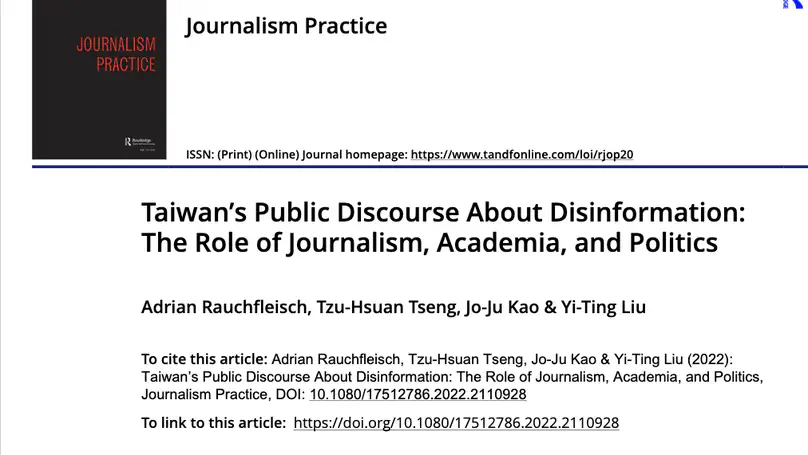
Experts have ranked Taiwan as the number one country regarding the exposure to disinformation. This assessment is not surprising as many exposed disinformation cases can be linked to Chinese state-aligned actors but also domestic political actors. Academic researchers, journalists, and the civic tech community have played an essential role in the fight against disinformation in Taiwan and the emergence of misinformation studies as a new research field. While disinformation in Taiwan is a major recurring issue, the “Western” debate within academia and journalism has taken a critical turn regarding the assumed effects of disinformation. Our study focuses on this potential disconnect between the international and the Taiwanese debate about disinformation. With automatic and manual content analysis, we evaluate what role academics and journalism play in the public discourse and what part of this debate reaches the largest audience. We show how Taiwan’s public misinformation discourse has evolved vis-a-vis the international discourse, what role misinformation studies play in this discourse, what part of the discourse reaches the widest audience, and what parts of the discourse could be problematic.
Contact
This is my medium publication link. You can just leave a message, post a comment, or use linkedin to find me.
- No.1, Sec. 4, Roosevelt Road, Taipei, 10617 Taiwan, Taipei,
- National Taiwan University, Graduate Institute of Journalism
